Renaissance For Truth & Accuracy
Boston Globe Calls For Nationwide Media Response To Trump’s Attacks On The Press
Woodstein U: Notes on the Mass Production and Questionable Education of Journalists
“There is an inextricable link between repressing the freedom of the press and repressing the freedom for civil society to campaign for their rights. Both are an attempt to repress “inconvenient truths,” silencing protesting voices, and dimming the spotlight on illegal activity perpetrated by individuals, companies, and governments in power. And both deserve the world’s attention.”
The late Ben Bagdikian, who wrote a cover story for The Atlantic in March 1977 on the so-called Woodstein phenomenon, summed it up like this: Bob Woodward and Carl Bernstein “were young, inexperienced, and not particularly promising in the eyes of their superiors. Working in a city and on a paper where the country’s most celebrated journalists were in top command, the two beginners beat them all and became national heroes … If they could do it, why couldn’t every high school student?”
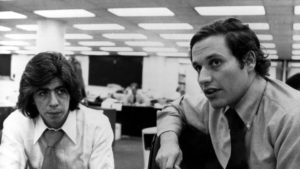
Washington Post writers Carl Bernstein, left, and Robert Woodward, who pressed the Watergate investigation, are photographed in Washington, D.C., May 7, 1973. It was announced that The Post won the Pulitzer Prize for public service for its stories about the Watergate scandal. (AP Photo)
But one experienced news director at a major television station said: “I prefer someone who majored in sociology or architecture or art history or psychology rather than somebody who spent a year or two learning how to put a film story together. One of our best reporters was a Rhodes scholar specializing in Florentine history. Given the nature of politics in this city. I don’t think that expertise in Machiavellian politics is such a bad idea.”
The people who hire journalists say they are divided on the value of journalism schools. But what about practitioners of journalism who, with the benefit of years of experience, can look back and judge for themselves? Did journalism graduates distinguish themselves over non-journalism graduates?
I wrote to fifty-three journalists who have won Pulitzer Prizes over the last ten years. Of those who responded. 75 percent did not major in journalism, most having degrees in English. English literature, history, or philosophy. Three did not attend college.
These Pulitzer Prize-winners were largely hostile to the idea of journalism schools and most of those approving a journalism degree specified that they favored a different undergraduate degree with journalism solely in a year of graduate work.
“THE POLITICS OF DISTRACTION” TROUBLE MEDIA STUDIES PROF. KEVIN HOWLEY
August 10, 2018
[A newspaper column from DePauw University Professor Kevin Howley takes media to task for being distracted from real issues by rhetoric.]
“Ever since [DT] announced his candidacy, the news media has followed his Twitter account with all the anticipation and credulity of a child on Christmas morning,” according to Kevin Howley, professor of communication at DePauw University. In a newspaper column, Howley continues, “Eager to publish — and profit handsomely from — the latest presidential tweet storm, an obliging press corps rewards Trump’s narcissism as it normalizes his authoritarianism.”
After the president tweeted last week that Attorney General Jeff Sessions should end the ongoing ngoing Special Counsel investigation into Russian interference in the 2016 presidential election, “Reporters and pundits spent the better part of the news cycle parsing the president’s words and debating whether this latest episode constitutes obstruction of justice,” Dr. Howley observes. “What’s most troubling about all of this is how willingly reporters and editors participate in Trump’s politics of distraction.”
In Howley’s view, the media’s myopic obsession with the president amount to “endless distractions that prevent us from addressing vital problems, like climate change and the health care crisis, that require immediate attention.”
The professor’s op-ed concludes, “The Romans knew a thing or two about the politics of distraction. They called it ‘bread and circuses.’ We call it ‘fake news.’ Despite, or perhaps because of the spectacle, the Roman Empire collapsed under its own imperious weight. Maybe there’s a lesson in that for the American Empire.”
You’ll find the complete text at the website of Indiana’s Kokomo Tribune.
Dick Cavett in the Digital Age
Stopping to smell the flowers with the last great intellectual talk-show host.
“Well, that’s an awkward subject matter for me, because I know all of them,” Mr. Cavett, 81, said on a recent sunny Thursday afternoon at his sprawling country house in Connecticut. “I’m not addicted to talk shows. God knows, I’ve spent enough time on them.”
As in Mr. Cavett’s 1960s and ’70s heyday, the country is in a period of turbulence, with racial tensions flaring, protests in the streets, and a fundamental ideological fissure. The hosts who have emphasized substance, who have “gone political,” have been praised and nominated for Emmys.
But “the next Cavett”? Is such a thing possible?
If only.
For three decades, Mr. Cavett was the thinking person’s Johnny Carson, embodiment of an East Coast sophisticate. He wore smart turtlenecks and double-breasted blazers, had more cultural references than a Google server and laced martini-dry witticisms into lengthy, probing talks with 20th-century luminaries including Bette Davis, James Baldwin, Mick Jagger and Jean-Luc Godard.
A Renaissance salon in a rabbit-ears era, “The Dick Cavett Show” was woke some 50 years before the term came into vogue. Viewers tuned in to see Muhammad Ali spout off about the Vietnam War or to see Yoko Ono in a 90-minute discussion with John Lennon.
While Mr. Cavett said he loathed Nixon’s politics, he called him “a brilliant, brilliant man” and was cordial to him in person. Years after Watergate, he remembers seeing the former president and his younger daughter, Julie, seated at an outdoor restaurant in Montauk, so he grabbed a menu and, posing as a waiter, began to list the specials: Yorba Linda cream pie, Whittier College soufflé.
Not his best material, Ms. Nixon told him.
The current president is perhaps the only celebrity over the age of 70 that Mr. Cavett has never met, other than being beaten by him to shrimp in a benefit buffet line years ago.
“I think all people who get to president of the United States must have something wonderful about them,” Mr. Cavett said in a mock-diplomatic tone.
“With that,” he added, “Cavett held a gun to his head and shot himself.”
AP Headline:
“Republicans promote fear, not tax cuts, in key elections”
[From space to borders, ‘fear is a contagion in a democracy.’]
“FEAR: Trump in the White House,” by Pulitzer Prize-winning journalist and bestselling author Bob Woodward, will be published by Simon & Schuster on Sept. 11th.
- “Drawing from hundreds of hours of interviews with firsthand sources, contemporaneous meeting notes, files, documents and personal diaries, FEAR brings to light the explosive debates that drive decision-making in the Oval Office, the Situation Room, Air Force One and the White House residence.”
- Jonathan Karp, president and publisher of Simon & Schuster: “‘FEAR is the most acute and penetrating portrait of a sitting president ever published during the first years of an administration.”
- “FEAR is Woodward’s 19th book with Simon & Schuster, beginning with ‘All the President’s Men’ in 1974. Each of the previous 18 books he authored or co-authored has been a national nonfiction bestseller. Twelve of those have been #1 national bestsellers.”
The WashPost’s Manuel Roig-Franzia writes that the “expected tenor of the book is underscored by its unsettling cover, an extreme close-up of a squinty-eyed Trump depicted through a gauzy red filter.”“The hush-hush project derives its title from an offhand remark that then-candidate Trump made in an interview with Woodward and Post political reporter Robert Costa in April 2016.
“DT said: “Real power is, I don’t even want to use the word: ‘Fear.’
“Woodward … has privately described the remark as ‘an almost Shakespearean aside.'”
Hope Reese, JSTOR Daily
The American philosopher Martha Nussbaum’s new book, The Monarchy of Fear, examines the politics of primal fear in the 2016 election.
In November 2016, the American philosopher Martha Nussbaum was in Tokyo preparing to give a speech when she learned of the results of the U.S. presidential election. Worrying about the implications of Trump’s victory, Nussbaum, who has long studied the philosophy of emotions, realized that she “was part of the problem.”
The examination of her own reaction resulted in Nussbaum’s latest work, The Monarchy of Fear––part manifesto, part Socratic-style dialogue about the large role that fear plays in our current political era and why it represents a serious danger to democracy. Nussbaum has explored a range of emotions in her work, and this book, she tells me, makes the case that “anger, disgust, and envy…are poisoned and made more disruptive by fear.” Fear, Nussbaum argues, is both a primal emotion, an impulse felt by infants, and an emotion shaped by social context as we become older. Fear is asocial, narcissistic––and often misguided. When we fear others, Nussbaum says, we are often not taking facts and information into account––and we are often perceiving dangers that don’t exist.
“The nature of fear is that it’s very volatile and it’s very easily hijacked by rhetoric.”
https://www.brookings.edu/blog/brown-center-chalkboard/2018/07/19/civics-education-should-be-about-more-than-just-facts/
The list of what ails the U.S. politically today is long and complicated, with problems as different as vast economic inequalityand gerrymandered congressional districts. But if we’re honest with ourselves, many of the country’s most serious problems exist within us, in the hearts and minds of its people. We shelter ourselves from perspectives and facts that disagree with our own. Our politics seem more rooted in contempt and schadenfreude than empathy and reason. Politicians exploit racial, ethnic, and class divisions, leaving many Americans feeling even more targeted and disenfranchised. And a foreign adversary disseminates false information through social media because it believes that Americans cannot (or won’t really care to) distinguish reality from manipulative fiction.
Those are shortcomings in our skills and dispositions. Do public schools have a role to play in developing them? We believe they do. Schools, more than any other public institution, are charged with preparing students for the responsibilities of civic life. Parents play a critical role, too, but schools are better positioned to ensure that all children have a core set of experiences. This includes developing skills that might not be on parents’ radar, like how to evaluate news disseminated over social media. Believing that schools ought to sharpen students’ civic skills and dispositions isn’t, as Finn suggests, a product of political correctness run amok, nor is it an inherently left-of-center idea. Americans have long seen this kind of thing as a core function of schools, and even Milton Friedman’s argument for vouchers is built on a notion that schools ought to instill a common set of values.
Perhaps Finn’s critique is that teaching facts is the way to develop civic skills and dispositions, or that students develop these skills and dispositions without schools teaching them explicitly. Perhaps rather than directly teaching news and media literacy or providing students with opportunities to engage in and experience the political process, schools should stick to teaching facts and modeling nice behaviors. We see that as a missed opportunity.
Hannah Arendt Explains How Propaganda Uses Lies to Erode All Truth & Morality: Insights from The Origins of Totalitarianism
In an ever-changing, incomprehensible world the masses had reached the point where they would, at the same time, believe everything and nothing, think that everything was possible and nothing was true… The totalitarian mass leaders based their propaganda on the correct psychological assumption that, under such conditions, one could make people believe the most fantastic statements one day, and trust that if the next day they were given irrefutable proof of their falsehood, they would take refuge in cynicism; instead of deserting the leaders who had lied to them, they would protest that they had known all along that the statement was a lie and would admire the leaders for their superior tactical cleverness.
The result of a consistent and total substitution of lies for factual truth is not that the lie will now be accepted as truth and truth be defamed as a lie, but that the sense by which we take our bearings in the real world—and the category of truth versus falsehood is among the mental means to this end—is being destroyed.
“We too,” writes Jeffrey Isaacs at The Washington Post, “live in dark times”—an allusion to another of Arendt’s sobering analyses—“even if they are different and perhaps less dark.” Arendt wrote Origins of Totalitarianism from research and observations gathered during the 1940s, a very specific historical period. Nonetheless the book, Isaacs remarks, “raises a set of fundamental questions about how tyranny can arise and the dangerous forms of inhumanity to which it can lead.” Arendt’s analysis of propaganda and the function of lies seems particularly relevant at this moment. The kinds of blatant lies she wrote of might become so commonplace as to become banal. We might begin to think they are an irrelevant sideshow. This, she suggests, would be a mistake.
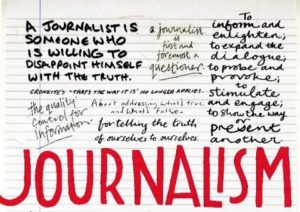

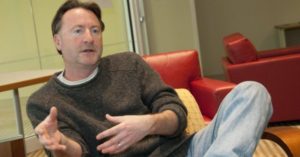
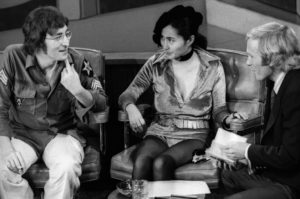



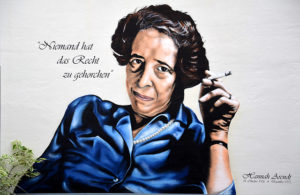
Undeniably believe that which you said. Your favorite justification appeared to be on the net the easiest thing to be aware of. I say to you, I definitely get annoyed while people consider worries that they just don’t know about. You managed to hit the nail upon the top and also defined out the whole thing without having side effect , people could take a signal. Will probably be back to get more. Thanks